Formic Acid Prices Q2 2025 Report Reveals Shifting Trade Dynamics and Import Reliance
28-Aug-2025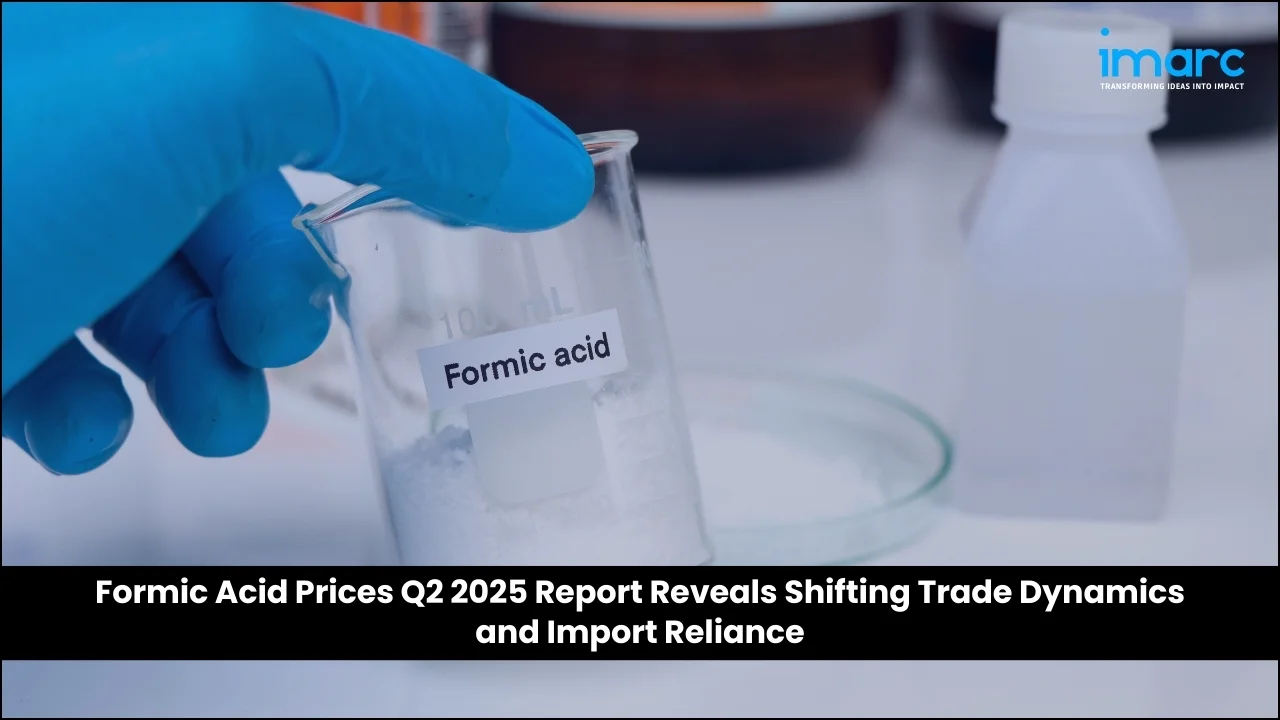
The global formic acid industry witnessed notable price variations across key markets, according to IMARC Group’s latest publication, Formic Acid Price Trend, Index and Forecast Data Report 2025 Edition, which provides updated insights for Q2 2025. The report highlights the fluctuations in methanol feedstock costs, shifting demand from end-use industries such as agriculture, leather, and rubber, and regional supply chain inefficiencies. Regions such as North America, Asia Pacific, and Europe, remained central to the evolving market landscape, reflecting a mix of cost pressures, production adjustments, and import dependencies.
Q2 2025 Formic Acid Prices:
- USA: USD 970/MT
- Japan: USD 416/MT
- India: USD 830/MT
- Saudi Arabia: USD 575/MT
- Brazil: USD 695/MT
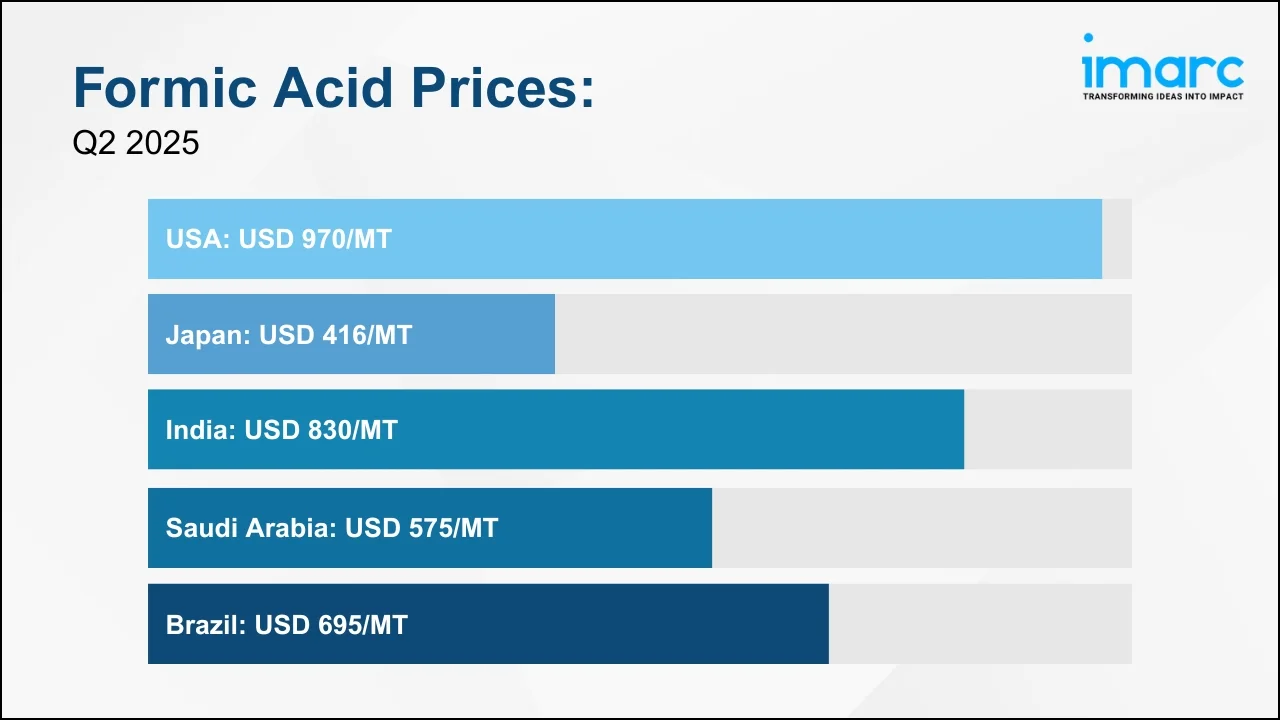
To access real-time prices Request Sample
The current prices underscores formic acid’s critical role across high-performance industries such as agriculture, leather, and rubber, with sustained demand and feedstock-driven cost fluctuations contributing to a stable to rising global price trend.
Key Regional Price Trends and Market Drivers:
USA
Formic acid prices in the USA reached USD 970/MT in June 2025, largely influenced by fluctuations in methanol costs due to changes in natural gas availability and refinery output. Transportation bottlenecks and reliance on imports heightened sensitivity to international market movements and inventory dynamics.
Japan
In Japan, formic acid prices stood at USD 416/MT in Q2 2025, with upstream methanol costs impacted by exchange rate shifts and freight adjustments. Seasonal demand from agriculture supported consumption, while import competition from regional suppliers pressured local price negotiations.
India
India formic acid prices settled at USD 830/MT in June 2025, driven by crude-linked methanol cost fluctuations and high freight charges. Demand from rubber and agriculture showed seasonal variation, while logistics disruptions and port congestion added to procurement challenges.
Saudi Arabia
Formic acid prices in Saudi Arabia recorded at USD 575/MT in June 2025, shaped by methanol feedstock availability and steady demand from livestock feed and leather sectors. Export-oriented supply strategies and GCC transportation cost variations further influenced domestic price movements.
Brazil
In Brazil, formic acid prices averaged USD 695/MT in Q2 2025, constrained by limited local production and heavy reliance on imports. Strong demand from agriculture persisted, but port strikes, logistical inefficiencies, and rising compliance costs intensified supply chain challenges.
Formic Acid Industry Overview:
The global formic acid market reached a volume of 944.41 Kilo Tons in 2024 and is projected to reach a volume of 1,232.24 Kilo Tons by 2033, expanding at a CAGR of 2.85% during 2025-2033. This steady growth reflects the material’s diverse industrial applications, particularly in agriculture, leather, rubber, and chemical processing, where it continues to play a vital role in supporting high-performance operations.
The market is driven by several key factors, including rising demand in agriculture for silage and pesticide formulations, expanding use in leather tanning and textile processing, and stable consumption within the rubber industry. In addition, growing reliance on import channels in emerging economies, rising feedstock methanol cost fluctuations, and persistent supply chain adjustments are further shaping pricing and growth dynamics in the global market.
Recent Market Trends and Industry Analysis:
The global formic acid market is experiencing steady growth, supported by its expanding role in multiple high-demand industries. A key driver is the animal feed sector, where formic acid serves as an effective preservative due to its antimicrobial properties. The rising global population and growing demand for animal-based products are pushing farmers to adopt feed preservation solutions, thereby strengthening formic acid consumption.
Additionally, the oil and gas industry are fueling market growth, with the compound widely used in well stimulation, acidizing, and drilling fluid formulations. Beyond these sectors, the rubber and textile industries are contributing to the market’s positive outlook. Formic acid is essential in synthetic rubber manufacturing and textile finishing processes, aligning with the steady global growth of both industries.
Strategic Forecasting and Analysis:
IMARC’s report incorporates forecasting models that project near-term price movements based on evolving trade policies, raw material supply, and technological trends. These tools enable businesses to mitigate risk, enhance sourcing strategies, and support long-term planning.
Key Features of the Report:
- Price Charts and Historical Data
- FOB and CIF Spot Pricing
- Regional Demand-Supply Assessments
- Port-Level Price Analysis
- Sector-Specific Demand and Supply Insights

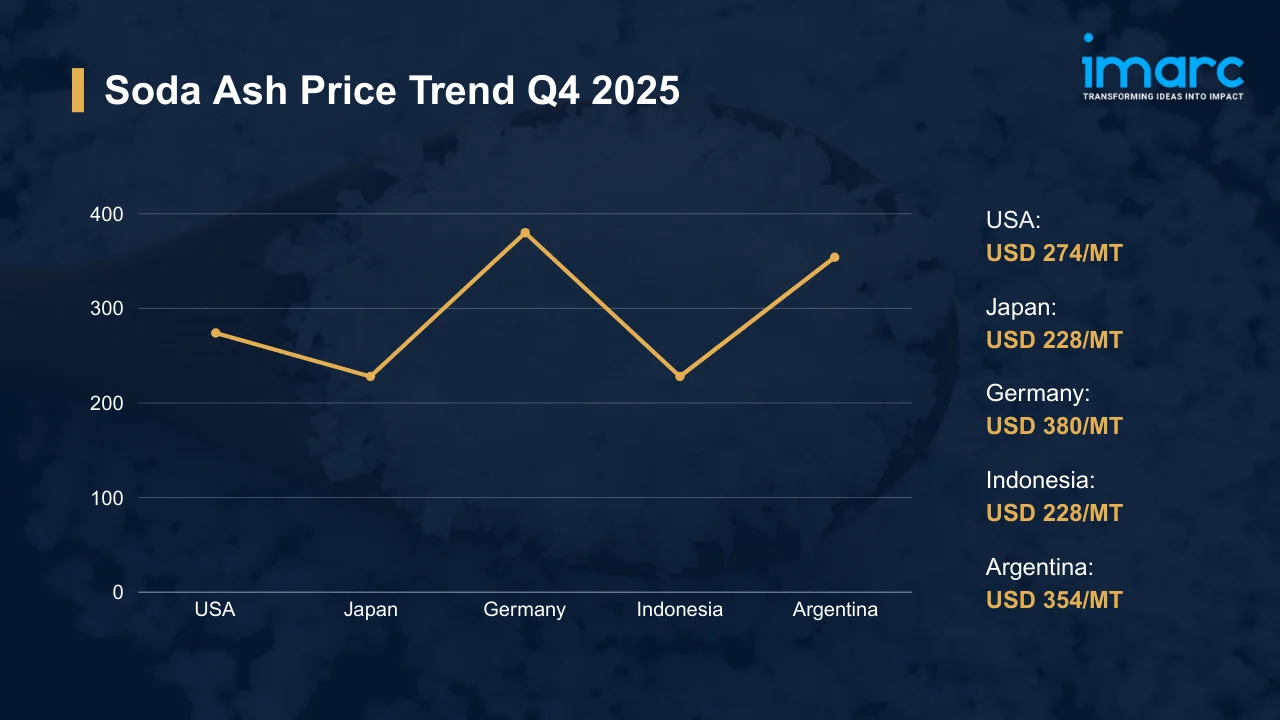
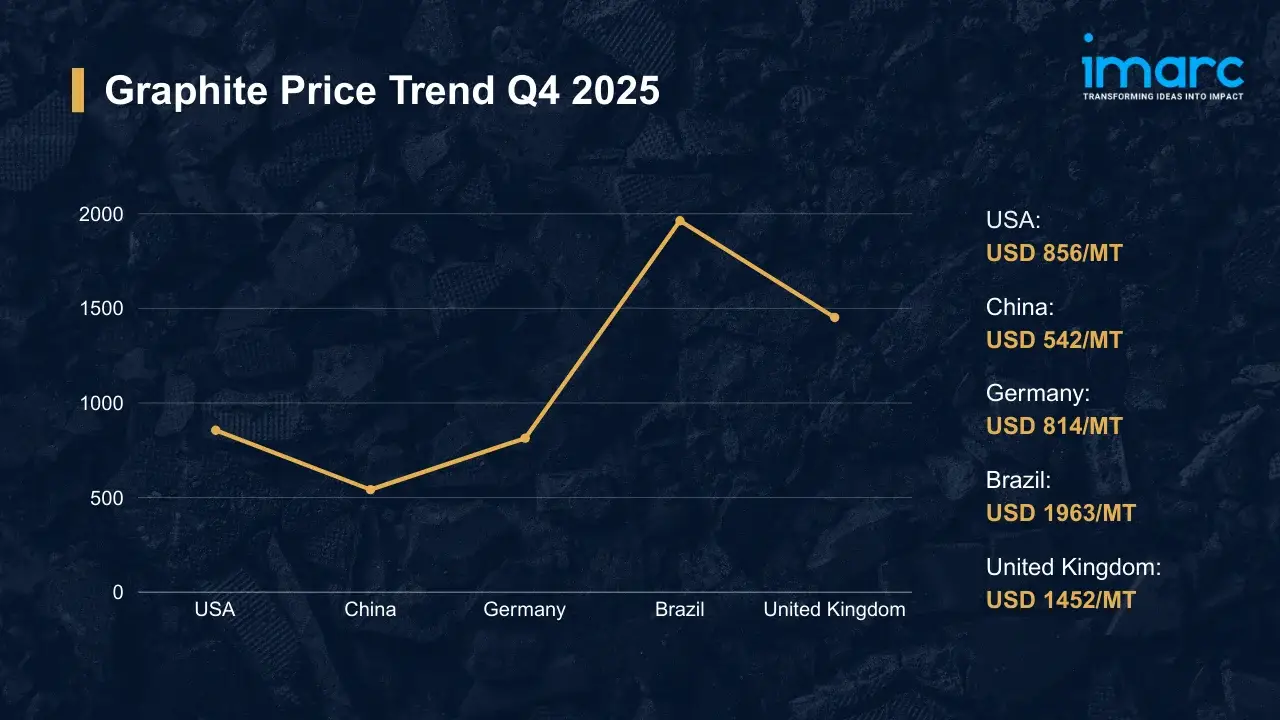
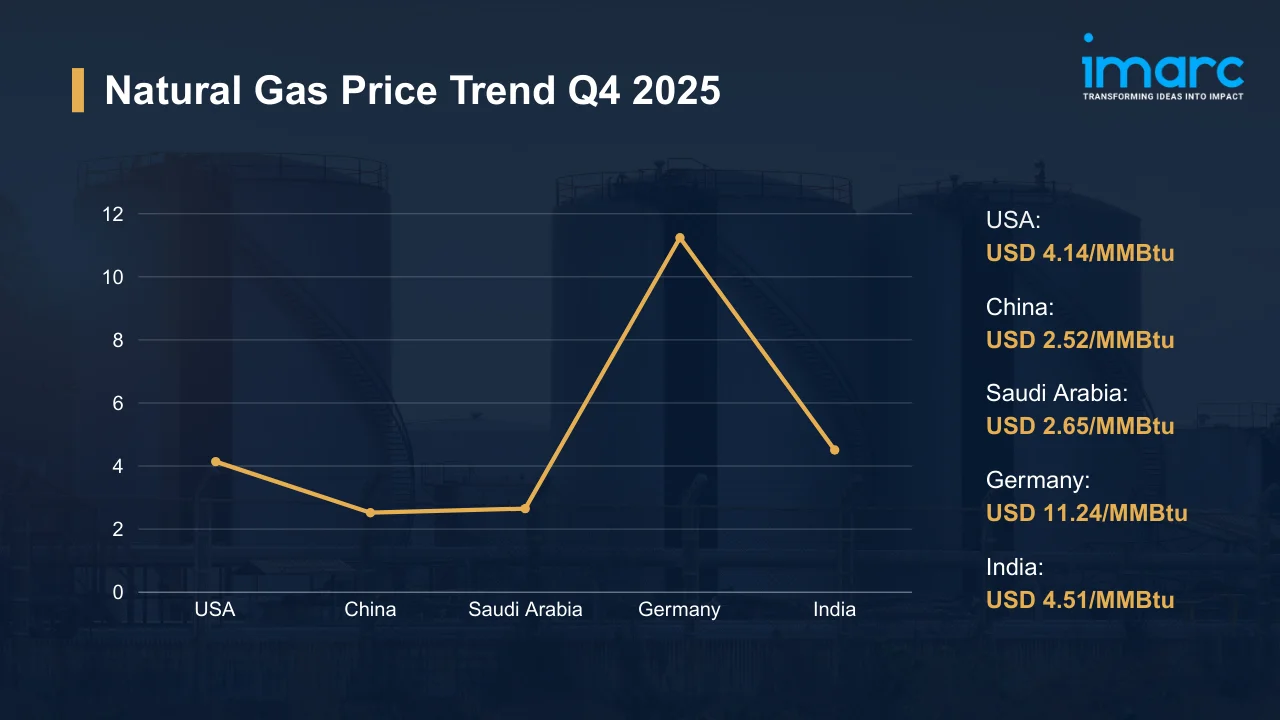




.webp)




.webp)












